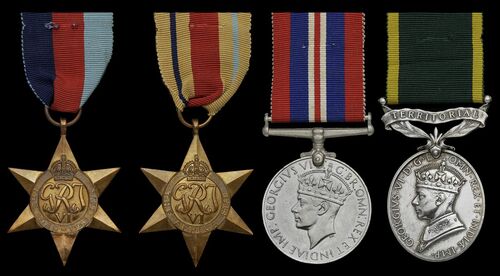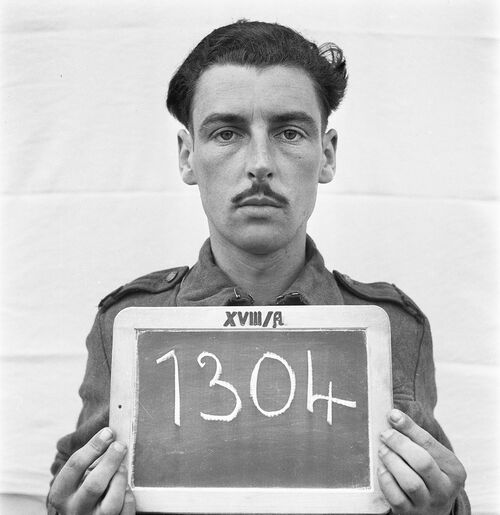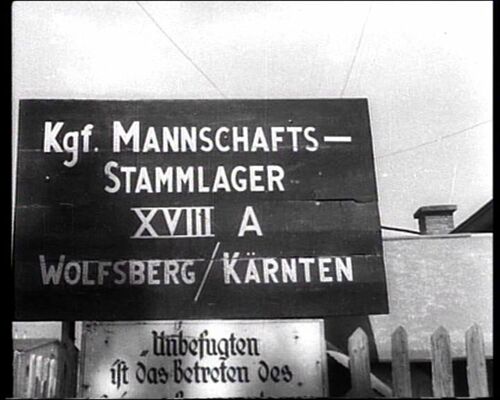Auction: 23001 - Orders, Decorations and Medals
Lot: 172
Four: Sapper H. Nixon, Royal Engineers attached 1st Armoured Brigade, who was taken a Prisoner of War in Greece on 28 April 1941 when specially charged with blowing bridges in an attempt to stem the German advance towards Thermopylae; he served time 'behind the wire' at Stalag 18A and would probably have shared in the sabotage during the building of the Schwabeck Dam
1939-45 Star; Africa Star; War Medal 1939-45; Efficiency Medal, Territorial, G.VI.R. (2072042. Spr. H. Nixon. R.E.), good very fine (4)
Harold Nixon was born at Uttoxeter on 27 February 1919 and served with the 292nd Army Field Company, Royal Engineers during the Second World War. The Company was raised in 'The Potteries' of Staffordshire and went to North Africa in 1940, before moving onto Greece with his Section in November that year. So it was to be that when German forces began their charge through Greece in the Spring of 1941, his Section would thus be attached to the 1st Armoured Brigade and tasked to blow bridges in order to stem the German attacks. Nixon was taken a P.O.W. on 28 April 1941 and the story of the loss of the unit was recalled by D. A. Slocombe, who was also with the Section:
'Having travelled throughout the length of Greece we ran into more trouble at Kalamata. The Germans had captured the Mole and part of the old Town and during the subsequent battle we were ordered to fix bayonets and counter attack. We never got close enough to the enemy to use bayonets, thank God, but a lot of shots were fired and the Mole was recaptured. We were eventually defeated by the enemy's superior strength and this battle, on 28th April, delayed the evacuation resulting in 10,000 men being left on the beach.
Our commander, Brigadier Parrington, ordered us to destroy all weapons and anything of value prior to surrender the next day, when it would be every man for himself. It so happened that, during my involvement in the desert campaign 40/41, I had acquired an Italian revolver with a good supply of ammo. and I was reluctant to discard my souvenir so stuck it up my trousers belt for safe keeping. A number of us did not relish the thought of becoming prisoners of war so we set off along the coast and took shelter in a cave for the night. We were discovered by the Farmer on whose land we were hiding and, considering him to be friendly, gave him all our money with a request to find us a boat. Five worrying days had passed without news from the farmer when suddenly the scream of bullets and the horrendous noise of machine gun fire shattered our dreams of freedom.
Fortunately there were no casualties and we moved out into the daylight to be met by a German patrol. I had forgotten about my revolver until the German Officer stuck a Mauser into my ribs, screamed at me in German and removed it from my belt; I was probably lucky he did not shoot me. It was obvious that the farmer had betrayed us and, as the Germans marched us towards the farmhouse, he appeared and showed them two large bins full of stolen British army food. By this gesture he was obviously hoping to secure his own safety but the German Officer was not impressed and shot him for looting. We were now expecting the guns to be turned on us but instead were given tins of corned beef from the farmers hoard; my God what a relief that was but we realised we were firmly in the bag and joined thousands of others back in Kalamata. Our journey began to prisoner of war camps, some by train and others by truck to a camp at Corinth. We were ordered to strip off our clothes and walk towards the beach, passing between two guards with canisters on their back; ahead of us others had already passed through the guards and appeared to be frolicking in the sea. As we passed through the guards they sprayed us with a disinfectant; it smelt like Carbolic and immediately started to burn our skin prompting an urgent dash to the cool waters of the sea and this was no frolic. This camp at Corinth was really dreadful, living on a starvation diet and suffering from dysentery and other related diseases. During our four weeks stay we were reduced to mere skeletons and many died; it was apparently part of the strategy to reduce our strength and will to attempt escape during the long march that was to come. It was during our stay here that the German Head of the SS, Heinrich Himmler, and his entourage visited the camp and one could feel the evil emanating from him as he passed along our lines. One soldier failed to stand to attention as Himmler passed, he stopped, drew his revolver and shot him in the shoulder; probably as a warning to us all, behave or else.'
Nixon was eventually held at Stalag XVIII (18A) (Wolfsberg), in which the captives played an active role in the sabotage during the construction of the Schwabeck Dam, Slocombe again commenting:
'On completion, the Germans had an opening ceremony complete with Band and all the trimmings. All went well until they started the turbines up and put pressure on the flues which had been partly blocked with cement; the result was catastrophic with cracks appearing from top to bottom and the Germans were not pleased. Of course the civilians, who were eager to cooperate with the Germans, were blamed for the disaster. I relate this story because sabotage was widespread amongst POW's and little is known about it. Sabotage was an extremely dangerous activity with a penalty of death if caught.'
Sold together with damaged named box of issue for his Efficiency Medal and copied research.
For further details refer to https://ww2greekveterans.com/2021/07/22/veteran-story-david-allan-slocombe/ and Ian Brown's excellent website http://www.stalag18a.org/frameset.html on the story of Stalag 18A. Natural History Museum of Vienna hold the photographic identity archives of the Camp and his image was captured there, as Prisoner No. 1304.
Subject to 20% VAT on Buyer’s Premium. For more information please view Terms and Conditions for Buyers.
Sold for
£320
Starting price
£70









